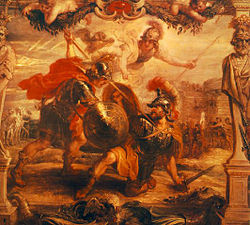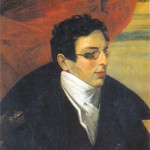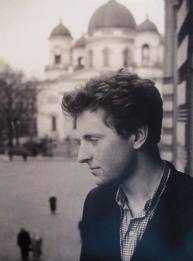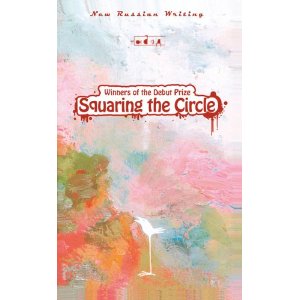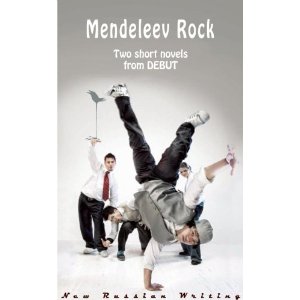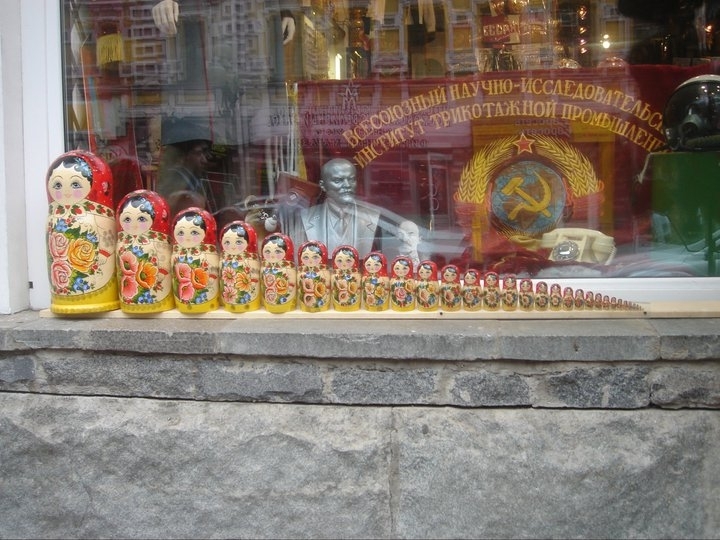In the explosive, unpredictable world of contemporary Russian literature at the beginning of the 21st century, there appeared a phenomenon of non-commercial literature that became more visible and more attractive to readers then the traditional readings of the 90s – commercial prose. Modern Russian writers are diverse and incredibly talented, and they did the almost impossible: they restored the Russian public’s trust in the written word after decades of government-ruled literature. It started with the appearance of the post-modernist works of the 90s. John Narins observed in his recent essay in “The American Reader” that “the first and perhaps key act of resistance was an attempt to restore the power and authority that had long been attached to literature in the Russian tradition, to re-establish reverence for the Writer as Sage, the Writer as Teacher and for literature as access to Truth.” He noted that this was accomplished to an extent.
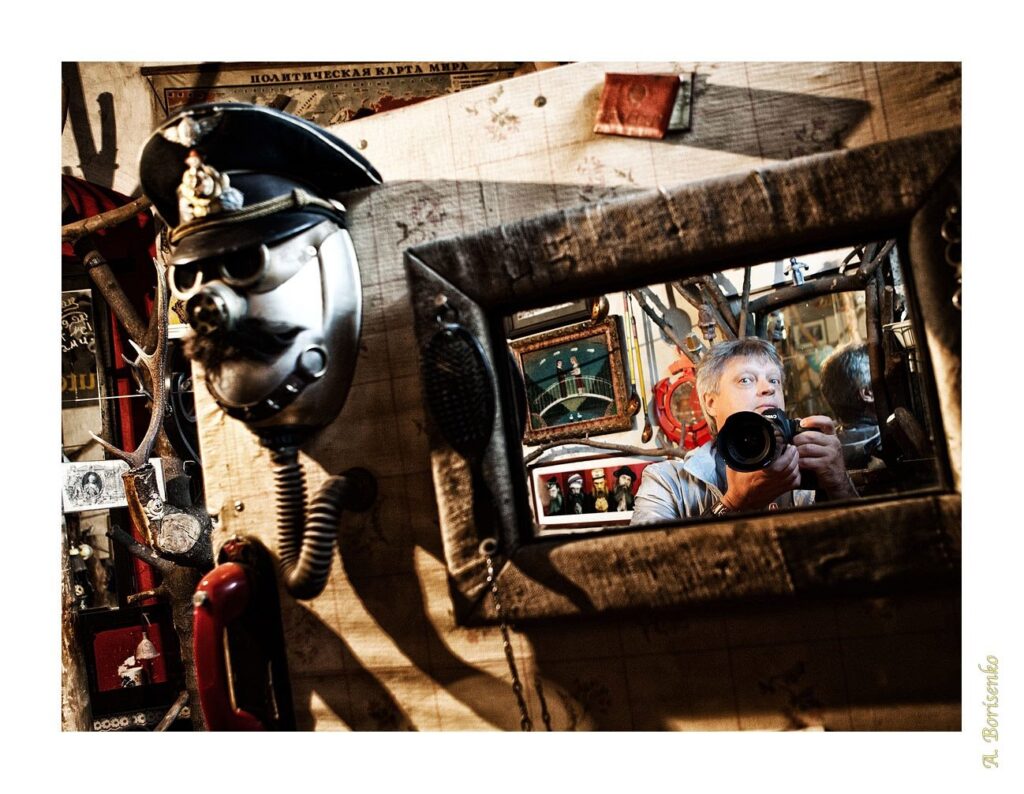 The post-modernist works at the end of the 20th century were one of the outlets of the negative feelings of the society in crisis and explain the withdrawal into the theatre of the absurd and dark irony. Victor Pelevin, Lyudmila Petrushevskaya, Vladimir Sorokin were on the front lines of the new literary wave at the beginning of the new millennium and their contribution to the renaissance of Russian literature is essential. Pelevin’s Chapaev I pustota is one of the best books of our times, as well as works of Petrushevskaya and Sorokin.
The post-modernist works at the end of the 20th century were one of the outlets of the negative feelings of the society in crisis and explain the withdrawal into the theatre of the absurd and dark irony. Victor Pelevin, Lyudmila Petrushevskaya, Vladimir Sorokin were on the front lines of the new literary wave at the beginning of the new millennium and their contribution to the renaissance of Russian literature is essential. Pelevin’s Chapaev I pustota is one of the best books of our times, as well as works of Petrushevskaya and Sorokin.
During the last decade, however, the Russian literary process, under the influence of a shift in the socio-cultural and psychological demands of society, entered a new stage. The period of “Post-Soviet mourning” concluded with the 2007 appearance of the Librarian (Bibliotekar) by Mikhail Elizarov – a bright and tragic concept of the “lost post-Soviet generation” in Russian society. The “alternative literature” of Pelevin, Petrushevskaya and others gradually made its way to a return to more traditional literature, to a reflection on the historical and humanistic aspects of the present day, to an everyday reality, as well as to a calmer discussion of the painful past and future direction of Russia.
Contemporary Russian literature, as anything else, indicates the shift in public literary tastes and as a mirror reflects the change in the perception of its future and the need for positive new ideas, or maybe, a return to traditional values. The tradition of expectation from the writers of the words of truth which originated in the time of Dostoevsky and Leo Tolstoy is still alive, and many Russians are looking for answers in literature.
Recently, the tremendous and unexpected success of the book of stories Everyday Saints and Other Stories by Archimandrite Tikhon (Shevkunov), which has been the number one bestseller in Russia for nearly a year and won the prestigious Big Book Award for most popular book in 2012, confirms this shift in public expectations.
The author himself explained his success in this way: “In this book I want to tell you about this beautiful new world of mine, where we live by laws completely different from those in “normal” worldly life – a world of light and love, full of wondrous discoveries, hope, happiness, trials and triumphs.”
This also explains the phenomenal influence of writer and public intellectual Dmitrii Bykov on the emergence of interest in an affirmative explanation of Soviet history and the success of his Ostromov, set in revolutionary St. Petersburg.
The world of Russian literature today is immense; it offers to the reader a variety of genres written by many exceptionally talented writers, who are almost completely unknown to the Western public. In addition, the appearance on the literary scene of authors from remote corners of the Russian federation such as the Caucasus region of Dagestan, Siberia, and the Urals, has added their colorful, vibrant works into the mainstream of Russian literature. The voices of today include the writers of the Debut Prize – young and talented, fearless, and free from the limitations of the past.
All of this modified the literary landscape in Russia very quickly; today’s situation contrasts the past view of the Russian literary scene with one of the “thriving of conceptualism and metaphysical realism (http://www.wilsoncenter.org/event/main- trends-contemporary-russian-literature). It is likely that contemporary literary processes in Russia will lead to the emergence of works equal to the great classical works of the past. It is difficult to predict when this will happen, however, or to speculate on whom we will call the next great Russian writer in the future.
The goal of this essay is to outline trends and bring to the surface questions about the possible directions in which Russian literature might go: will it be the rebirth of the traditional Russian psychological novel, or the growth of absurdist post-modernist writing, using the works of contemporary authors as examples?
There are a number of trends that have the potential to become distinctive characteristics of the Russian literary process in the future. Is it possible to define the options as New Realism vs. Magic Realism? The conventionality of such formula is evident but it does not cover the whole spectrum of today’s Russian literature.
In the “post-Pelevin era” (even if he continues to be a major player in the literary process and one of the most influential writers), the appearance of literature that overcomes conventional conceptual limits is obvious. One cannot characterize, for example, the prose of Olga Slavnikova as pure “magic realism” (or metaphysical writing). In her best works she goes far beyond the limits of any “isms”. Her short novel Bazilevs is reminiscent of Chekhov’s stories and one of the remarkable works that cannot be defined outside terms of the tradition of Russian classic literature where psychology is often intertwined with metaphysical ideas that inform the phenomenon of classical literature.
Slavnikova’s magnum opus, 2017, the winner of the Russian Booker prize in 2006, is one of her most unusual works. Generally speaking, it is an acclamation of Beauty, which overpowers human beings and takes revenge on them through destruction. The meaning of Slavnikova’s novel goes far beyond the fable of the adventurous novel, or love story, or satirical reflection on contemporary Russian society. It appears that all this is subordinated to one general idea that beauty as the quality of spiritual and metaphysical power can become a force in itself and restore the natural balance by destroying the intruders. This acclamation of breathtaking beauty makes her novel an extraordinary happening in the Russian literary landscape. Slavnikova’s descriptions of the natural harmony that confront the intruders are such an astounding hymn to the beauty of the fictional Riphean Mountains that they merit placement among the classics: “Beauty was flowing from all sides. Anfilogov scooped it up when he wanted to make dinner, out of the smiling river; sunlight fell on Anfilogov through this beauty – through the branches, through invisible aerial nets and the sun itself was transformed from the ordinary lamp you don’t look at into the focus of the beauty, the radiant object that irritated his nerves.” Unfortunately, these aspects of her work were not adequately reproduced in recent translation into English.
Another trend is the emergence of the traditional Russian psychological novel that was conventionally called “new realism.” Among many other authors are Zakhar Prilepin, Roman Senchin, Denis Osokin, and Alexander Ilichevsky, whose writing represents the flourishing of the traditions of classical psychological prose.
Ilichevsky’s recent novel Anarhisty is such a splendid continuation of classical literature about Russian provincial life with its long teas and conversations about great ideas from the past, the ways of love, that even the naturalistic scenes regarding drug addiction and humiliation do not spoil the impression of freshness and hopefulness.
Zakhar Prilepin’s talent is already prominent; his writing style combines the classically clear integrity of his language with the ability to reveal the inner universe of his heroes by very simple means. His early novel Sankya about a young rebel was devoted to the theme of the individual’s rights to action against a hostile and unjust society. His novel-in-stories Grekh (The Sin), winner of the National Bestseller of the Decade (2008, 2011), is considered to be one of the best contemporary Russian novels and is a strong testimony of the return to the traditions of Russian psychological prose. It is an incredibly optimistic and bright work even in its brutal openness to life’s problems.
Roman Senchin is one of the most prominent representatives of the “new realism”. His novel Eltyshevy ( The Eltyshevs) is one of the remarkable novels of 2010; it was nominated for Super National Bestseller and for Big Book Award. The story portrays the demise of the ordinary Russian family in the Siberian village where brutality rule lives, and life and death are only happenings without any significance to people. In his novel Senchin shows Russia’s path to a dead end, to life devoid of any spirituality, and at the end the disintegration of society and collapse of humanity. Could it be that his portrait of the disruption of contemporary life in Russia is one of the distinctive features of the new realism? If so, it is in jeopardy of becoming some kind of proletarian realism by Maxim Gorky, who contributed to a de-spiritualisation of Russian literature by some of his books. Roman Senchin’s powerful message might compel the reader to contemplate and even cry. This message, however, is devoid of any hope, the hopelessness is embodied in the essence of the novel and it continues till the end where seemingly the people’s lives “were pointless and stupid”, as were their passion and love, and even their deaths.

The realism of Senchin’s book cries out about the state of contemporary life in Russia, and in doing so conveys the need for bringing back the ideas of the great Russian humanists into ordinary life. The best Russian writers of today are searching for their answers to the eternal Russian question: Chto delat’? (What is to be done?) Their answers are as different as the writers themselves, but their openness to the world and their talents deserve to be recognized; we’ll continue to discuss the recent trends in contemporary Russian literature.
By Elena Dimov. Edited by Margarita Dimova

